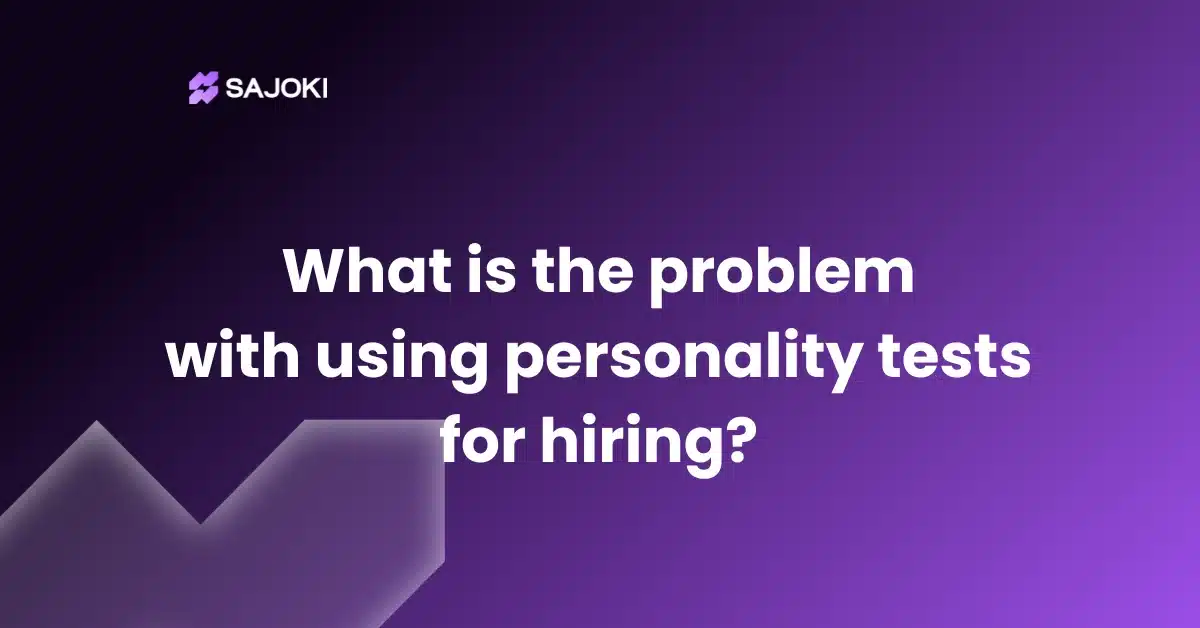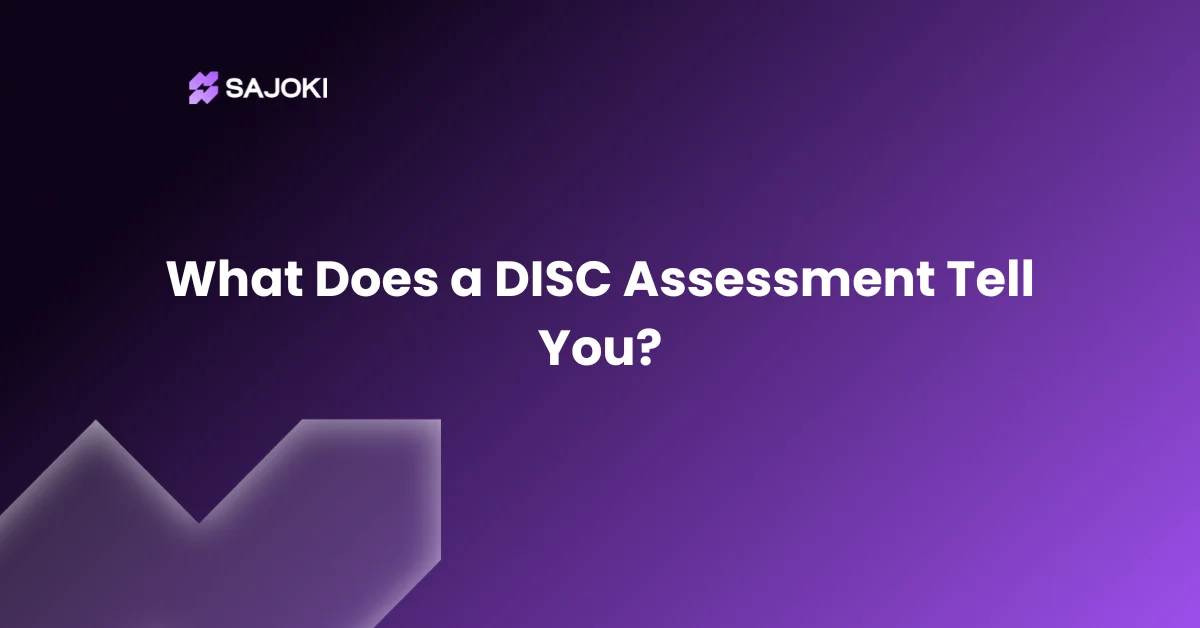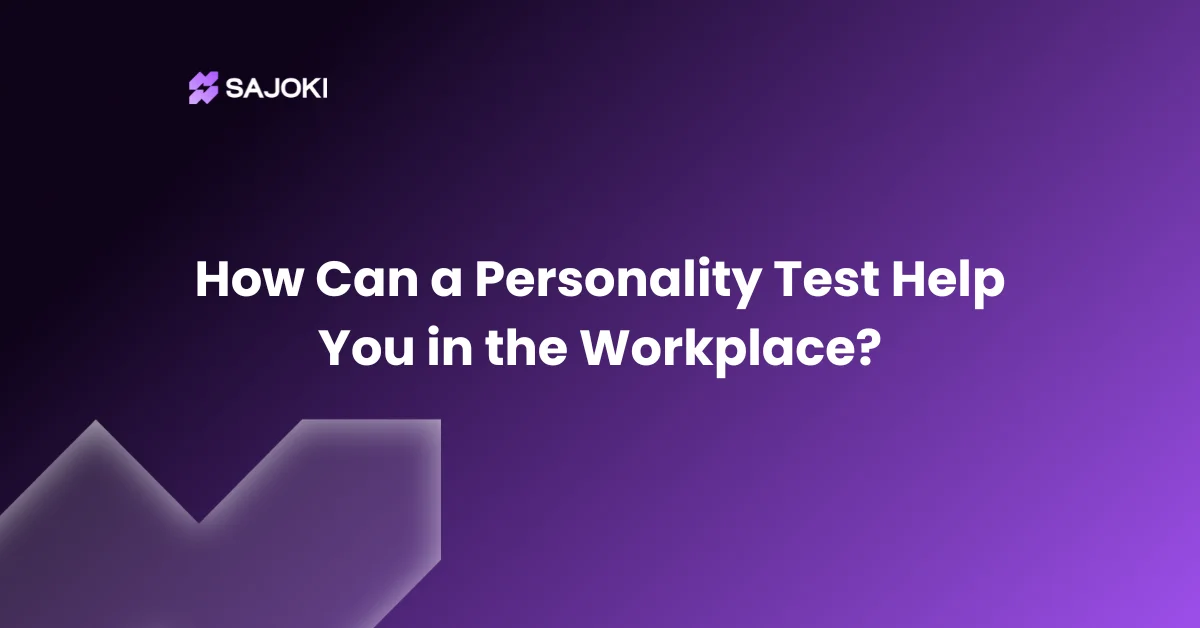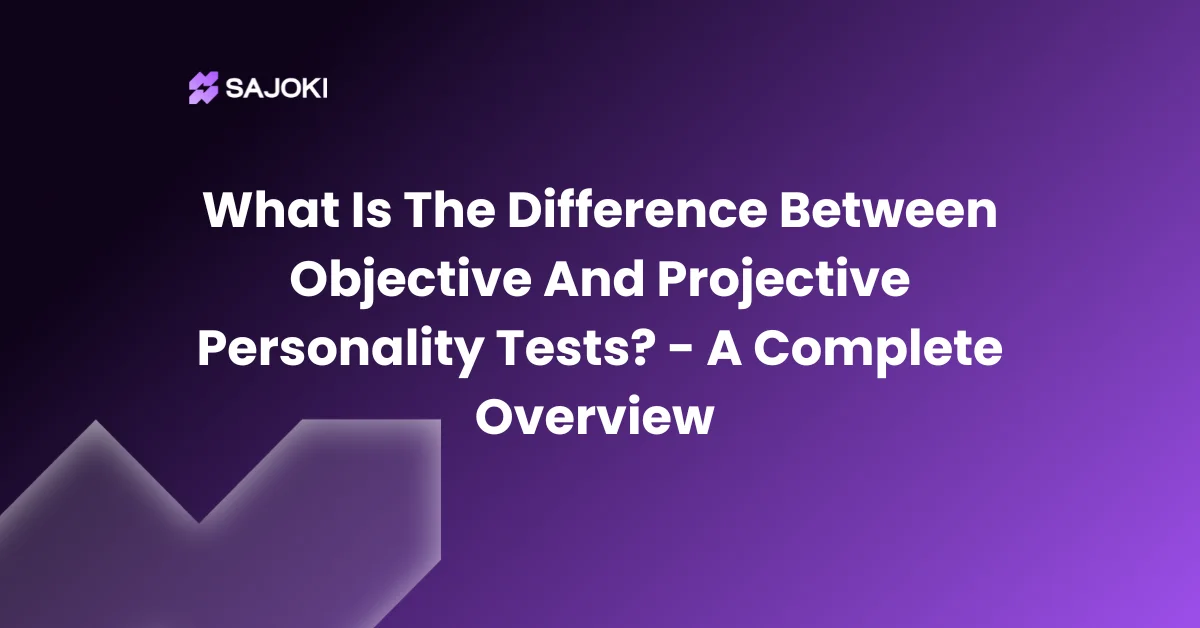If you’re working as an HR or recruiter, chances are you’ve been highly tempted to use personality tests. While I understand why you might have the urge to jump on this trend, it’s important that you evaluate the risks of using these tests for hiring.
So, what is the problem with using personality tests for hiring?
When using a personality test, you might face a few challenges starting with their lack of predictive accuracy. Besides not being able to predict performance, personality tests involve the risk of manipulated responses, limited job-specific views, bias, and legal considerations.
Keep reading as I break down each of these challenges in detail. I will also discuss the right way to implement the test in your hiring process. More importantly, you will get a very convenient alternative to these traditional personality assessments. So, let’s dive right into it!
7 Major Problems Of Using Personality Tests For Hiring
So, here is a detailed breakdown of the problem with using personality tests for hiring.
1. Lack Of Predictive Accuracy
A major concern about using these tests for hiring is their inability to predict job performance.
No personality test will ever confirm how each candidate might perform. To begin with, these tests often lack adequate scientific validation for hiring decisions.
Moreover, even with a high scientific validity, the tests will provide mere insights into personality traits.
They won’t highlight a candidate’s skills, competencies, adaptability, or emotional intelligence. All of which are crucial factors for determining job success.
2. Manipulated Responses
Another major issue that is totally out of your control is how the job candidates manipulate their answers.
Often, they will respond to the questions in a way that suits the specific role. They will try to create answers based on what the employers want to hear.
These self-reported answers prevent you from identifying their true traits. Moreover, they will never be an accurate reflection of a job seeker’s identity in real-world scenarios. The answers will only be a reflection of how they want to present themselves to the recruiters.
3. Limited Job-Specific Factors
Even the most reliable personality tests don’t provide job-specific insights. Personality tests don’t consider the uniqueness of different roles. They are usually just a one-for-all solution that fails to be beneficial in the long run.
Using personality tests that provide generalized views of a candidate can derail your recruitment.
This is why personality tests alone will never be an accurate predictor. What you need to consider is how different roles require different skills, not just personality types.
4. Limited Context
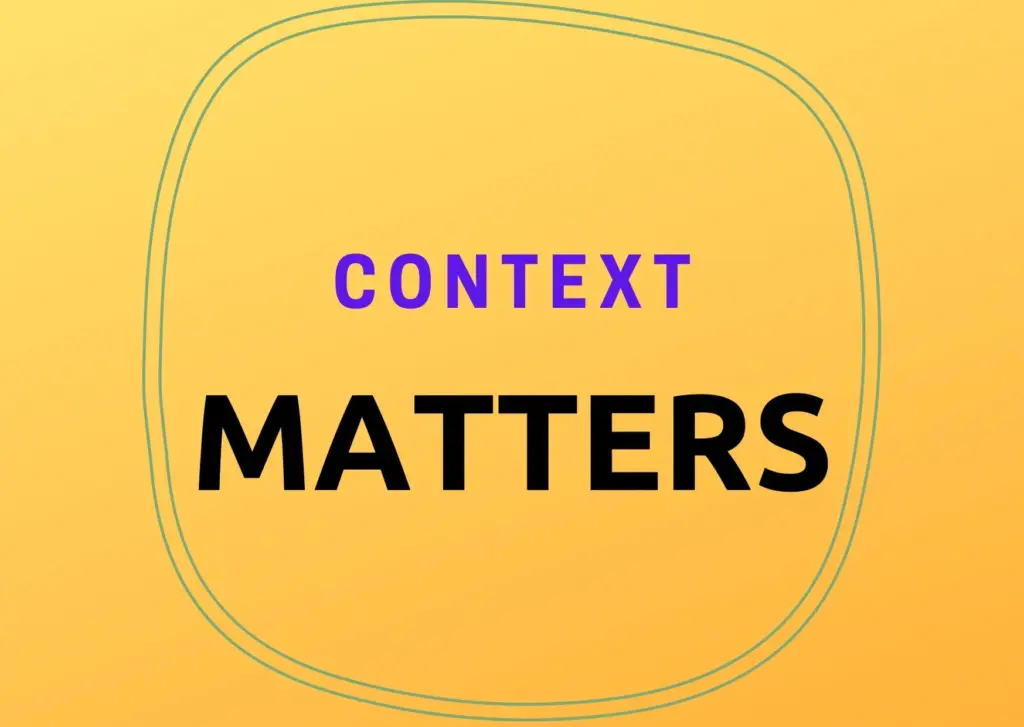
Personality tests don’t assess the unique contexts different candidates go through. They fail to account for the test results might be influenced by certain situations. For example, a candidate’s personality trait might appear different on the basis of work environments, team dynamics, or company culture.
Moreover, it’s important to understand their emotional stability when taking the tests. Some go through test anxiety which can derail the test results. Thus, portraying the candidate as something they’re not.
5. Potential Bias
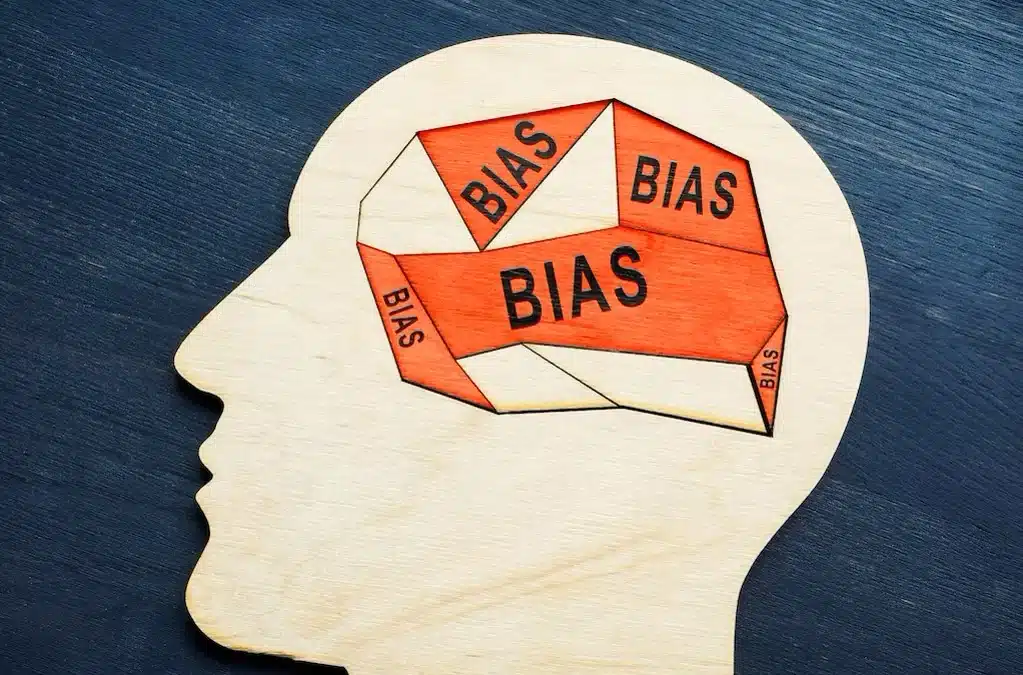
Some personality tests include the risk of bias or discrimination. This happens because the tests are created to favor certain answers or certain personality types
Essentially, this puts candidates into a rigid position. It also prevents them from displaying their true selves.
The main problem with this is that companies might lose some highly talented individuals. Since the test is likely to exclude candidates who don’t fit into pre-conditioned categories, recruiters might not even consider selecting them. Eventually, this reduces workplace diversity and develops stereotypes.
6. Over-Reliance On Test Results
Some employers place significant importance on the test results, relying too much on them. This ends up doing more harm than good. Don’t let personality test results influence your entire decision-making ability if you want to truly optimize your hiring process.
7. Legal And Ethical Concerns

Some personality tests can violate employment laws. Implementing such personality tests will definitely do more harm than good. Companies have to consider the test’s privacy concerns. Look into how candidate data is collected and the employee compliance maintained by it.
Moreover, the test should be free of any risk of unfair hiring practices. These could lead to major legal challenges for companies.
How to Properly Use Personality Tests for Hiring: 3 Key Ways
Well, now you know the problem with using personality tests for hiring. However, you must understand that it isn’t all bad. Like everything else, personality tests also have their good and bad sides.
With that being said, you need to know how to utilize a personality test. When used appropriately, they can offer true value. So, here are a few ways you could use a personality test to its full potential.
1. Use It As An Additional Supporting Tool
Never use personality tests to replace other hiring methods or tools. Rely on the tests as additional support. Remember, these tests are for assisting you with additional insights that you can’t otherwise find about a candidate. However, don’t use it to solely dictate your hiring decision.
2. Combine With Proper Evaluation
Always pair up the tests with proper evaluation systems. This will help you ensure a well-rounded assessment of the job candidates. Needless to say, you must interview each candidate to understand their true potential.
Other than standard interviews, you can turn to assessments that focus on job-related abilities. Another great option is simulation-based activities to assess real-world capabilities.
3. Maintain Transparency
When using personality tests, try to be as transparent as possible. Always inform your candidates about the type of test you’re using and the data collection process.
Moreover, assure your candidates that they’re not solely being assessed based on the personality test results. Keep them informed about your entire recruitment process.
An Alternative To Traditional Personality Tests
Considering the discourse over personality tests, I understand why you might hesitate to use them. However, there is no need to stop using them altogether, after all, they can bring in numerous benefits. This is why I am here to recommend a quick alternative to traditional personality tests.
Try SAJOKI, an AI-powered personality assessment platform that provides deep hiring insights. What makes SAJOKI different from other personality tests is its focus on soft skills. It uses advanced AI analytics to identify soft skills in job candidates.
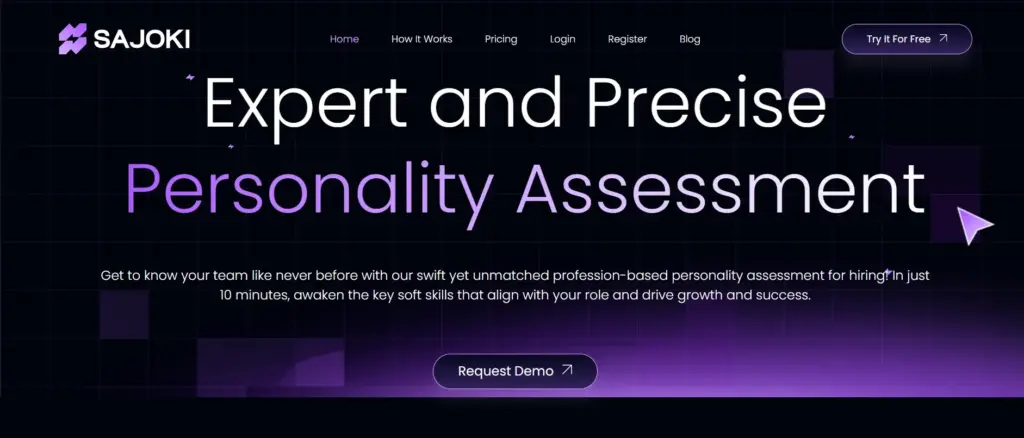
Moreover, the soft skill assessments are role-specific. So, it doesn’t matter what role you’re hiring for, SAJOKI will provide detailed insights into soft skills needed for specific roles.
SAJOKI will further simplify your hiring decision by providing you with a profile comparison feature. It will help you analyze your job candidates and compare them, ensuring you find the right talent for your company.
How To Use Sajoki?
Look no further and implement SAJOKI into your recruitment process. Follow the steps below to use SAJOKI.
1. Sign Up
Go to SAJOKI’s official platform and sign up as a company.
2. Create Role-Specific Tests
Log in on the platform, and you will see a Create option. Click on it and you will land on a page that lets you create a test and a job description by entering the job title.
Simply enter the title for the desired job role to receive an AI-generated job Description. Then, click on Generate Test.
3. Send Code To Candidates
After the test is generated, you will be given a code to access the test. Send it to your job candidates during the recruitment phase.
4. Receive AI-powered personalized Profile
When the candidates are done with the test, SAJOKI will use AI to analyze their responses and create specific profiles for each candidate. SAJOKI’s AI will also assist you with comparing each candidate.
5. Ultimate Hiring Decision
Analyze the insightful profiles you receive from SAJOKI. Shortlist your candidates and conduct interviews. Make the final hiring decision by figuring out who fits your company’s needs the best.
FAQ
Q. What are the disadvantages of personality tests?
Despite their use throughout the world, personality tests have a few disadvantages. This includes a lack of predictive accuracy, manipulated candidate response, potential bias, and more.
Q. Can personality tests be used for hiring?
Yes, they can. However, you must ensure you’re utilizing them in the right way. Don’t use them as the only decision-making factor for hiring.
Q. What are the ethical issues of personality tests in the workplace?
The main ethical issue arises due to privacy concerns. Personality tests have faced criticism because of the way they handle candidate data.
Conclusion
So, what is the problem with using personality tests for hiring? To begin with, personality tests aren’t an accurate indicator of job performance. They merely provide recruiters with insights into candidate’s personality traits. Moreover, there are some ethical considerations when using such tests.
However, does that mean you should stop using them? No, not really. You just have to be careful about how you’re using them. Always go for a test with high scientific validity and reliability. Additionally, combine the tests with structured interviews and you will be good to go!
